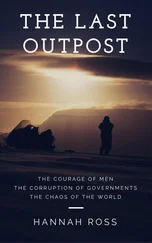If the students should succeed in destroying the universities, then they will have destroyed their own base of operations—and this would be true in all the countries affected, in America as well as in Europe. Nor will they be able to find another base, simply because they cannot come together anywhere else. It follows that the destruction of the universities would spell the end of the whole movement.
But it would not be the end either of the educational system or of research. Both can be organized quite differently; other forms and institutions for professional training and research are perfectly conceivable. But then there will be no more college students. Let us ask what in fact is student freedom. The universities make it possible for young people over a number of years to stand outside all social groups and obligations , to be truly free. If the students destroy the universities, then nothing of the sort will any longer exist; consequently there will be no rebellion against society either. In some countries and at some times, they have been well on their way to sawing off the branch they are sitting on. That in turn is connected with running amok. In this way the student protest movement could in fact not only fail to gain its demands but could also be destroyed.
REIF:Would that hold good, too, for the student protest movement in Europe?
ARENDT:Yes, it would apply to most student movements. Once more, not so much to those in South America and in the Eastern European countries, where the protest movement is not directly dependent on the universities and where a large part of the population is behind it.
REIF:In your study On Violence , there is this sentence: “The third world is not a reality but an ideology.” That sounds like blasphemy. For, of course, the third world is a reality; what’s more, a reality that was brought into being first by the Western colonial powers and later with the cooperation of the United States. And so it is not at all surprising that this reality produced by capitalism should result, under the influence of the worldwide and general indignation of youth, in a new ideology. However, the significant thing, I believe, is not this ideology of the New Left, but simply the existence of the third world, the reality of the third world, which first made this ideology possible.
Do you really intend by your astonishing sentence to question the reality of the third world as such? Possibly there’s a misunderstanding here that you could clear up.
ARENDT:Not a bit of it. I am truly of the opinion that the third world is exactly what I said, an ideology or an illusion.
Africa, Asia, South America—those are realities. If you now compare these regions with Europe and America, then you can say of them—but only from this perspective—that they are underdeveloped, and you assert thereby that this is a crucial common denominator between these countries. However, you overlook the innumerable things they do not have in common, and the fact that what they do have in common is only a contrast that exists with another world; which means that the idea of underdevelopment as the important factor is a European American prejudice. The whole thing is simply a question of perspective; there is a logical fallacy here. Try telling a Chinese sometime that he belongs to exactly the same world as an African Bantu tribesman and, believe me, you’ll get the surprise of your life. The only ones who have an obviously political interest in saying that there is a third world are, of course, those who stand on the lowest step—that is, the Negroes in Africa. In their case it’s easy to understand; all the rest is empty talk.
The New Left has borrowed the catchword of the third world from the arsenal of the Old Left. It has been taken in by the distinction made by the imperialists between colonial countries and colonizing powers. For the imperialists, Egypt was, naturally, like India: they both fell under the heading of “subject races.” This imperialist leveling out of all differences is copied by the New Left, only with labels reversed. It is always the same old story: being taken in by every catchword, the inability to think or else the unwillingness to see phenomena as they really are, without applying categories to them in the belief that they can thereby be classified. It is just this that constitutes theoretical helplessness.
The new slogan—Natives of all colonies or of all former colonies or of all underdeveloped countries unite!—is even crazier than the old one from which it was copied: Workers of the world unite!—which, after all, has been thoroughly discredited. I am certainly not of the opinion that one can learn very much from history—for history constantly confronts us with what is new—but there are a couple of small things that it should be possible to learn. What fills me with such misgivings is that I do not see anywhere people of this generation recognizing realities as such, and taking the trouble to think about them.
REIF:Marxist philosophers and historians, and not just those in the strict sense of the word, today take the view that in this stage of the historical development of mankind there are only two possible alternatives for the future: capitalism or socialism. In your view, does another alternative exist?
ARENDT:I see no such alternatives in history; nor do I know what is in store there. Let’s not talk about such grand matters as “the historical development of mankind”—in all likelihood it will take a turn that corresponds neither to the one nor to the other, and let us hope it will come as a surprise to us.
But let’s look at your alternatives historically for a moment: it began, after all, with capitalism, an economic system that no one had planned and no one had foreseen. This system, as is generally known, owed its start to a monstrous process of expropriation such as has never occurred before in history in this form—that is, without military conquest. Expropriation, the initial accumulation of capital—that was the law according to which capitalism arose and according to which it has advanced step by step. Now just what people imagine by socialism I do not know. But if you look at what has actually happened in Russia, then you can see that there the process of expropriation has been carried further; and you can observe that something very similar is going on in the modern capitalist countries, where it is as though the old expropriation process is again let loose. Overtaxation, a de facto devaluation of currency, inflation coupled with a recession—what else are these but relatively mild forms of expropriation?
Only in the Western countries are there political and legal obstacles that constantly keep this process of expropriation from reaching the point where life would be completely unbearable. In Russia there is, of course, not socialism, but state socialism, which is the same thing as state capitalism would be—that is, total expropriation. Total expropriation occurs when all political and legal safeguards of private ownership have disappeared. In Russia, for instance, certain groups enjoy a very high standard of living. The trouble is only that whatever these people may have at their disposition—cars, country houses, expensive furniture, chauffeur-driven limousines, et cetera—they do not own; it can be taken away from them by the government any day. No man there is so rich that he cannot be made a beggar overnight—without even the right to employment—in case of any conflict with the ruling powers. (One glance into recent Soviet literature, where people have started to tell the truth, will testify to the atrocious consequences more tellingly than all economic and political theories.)
Читать дальше












